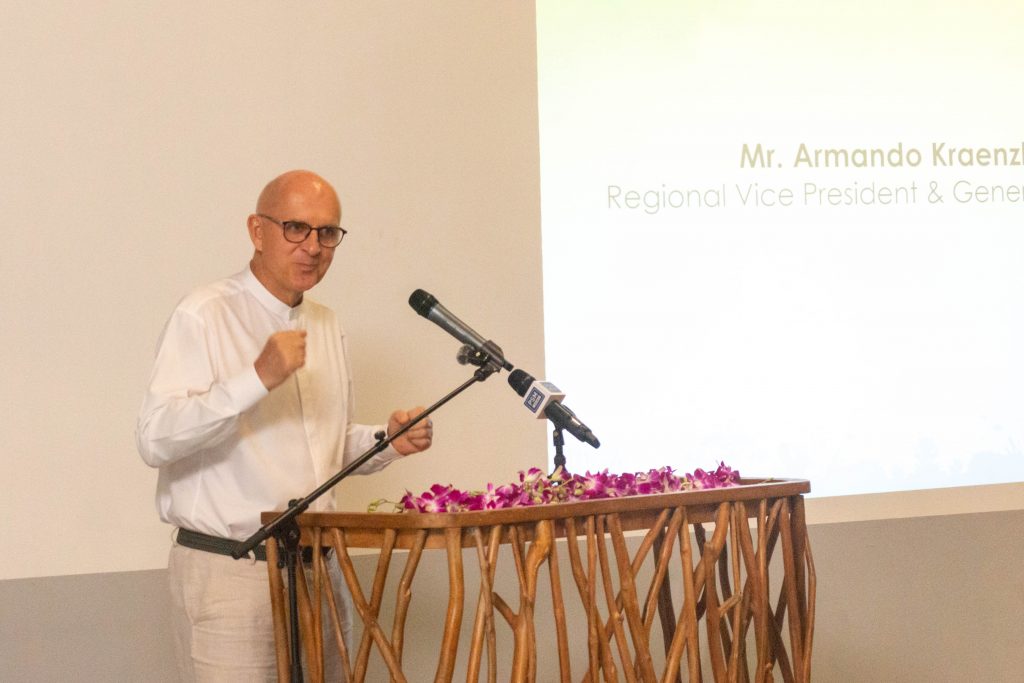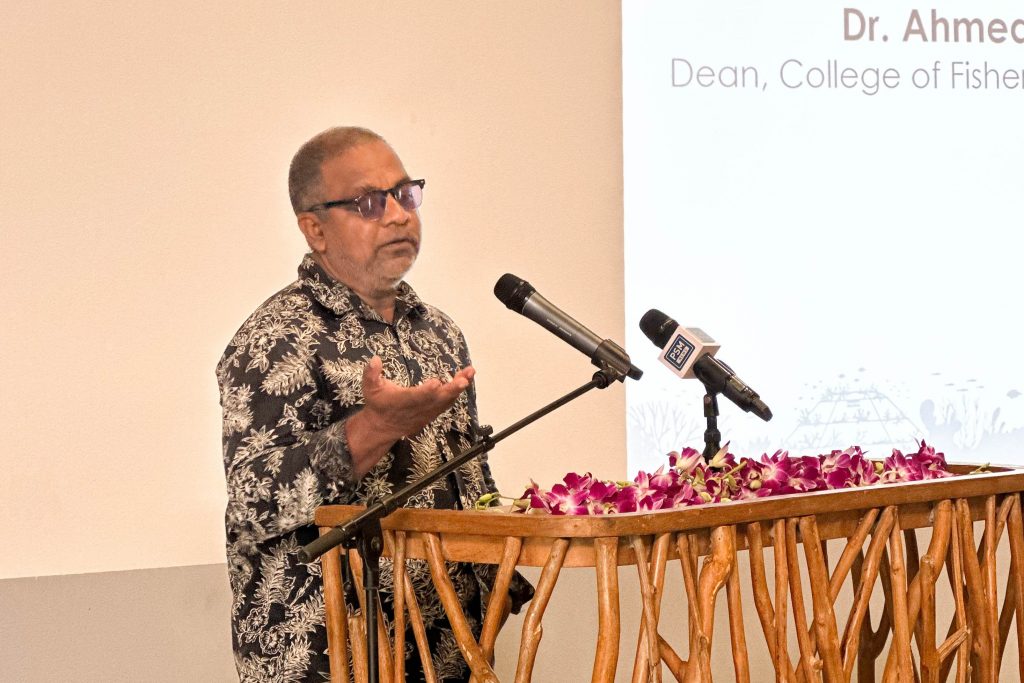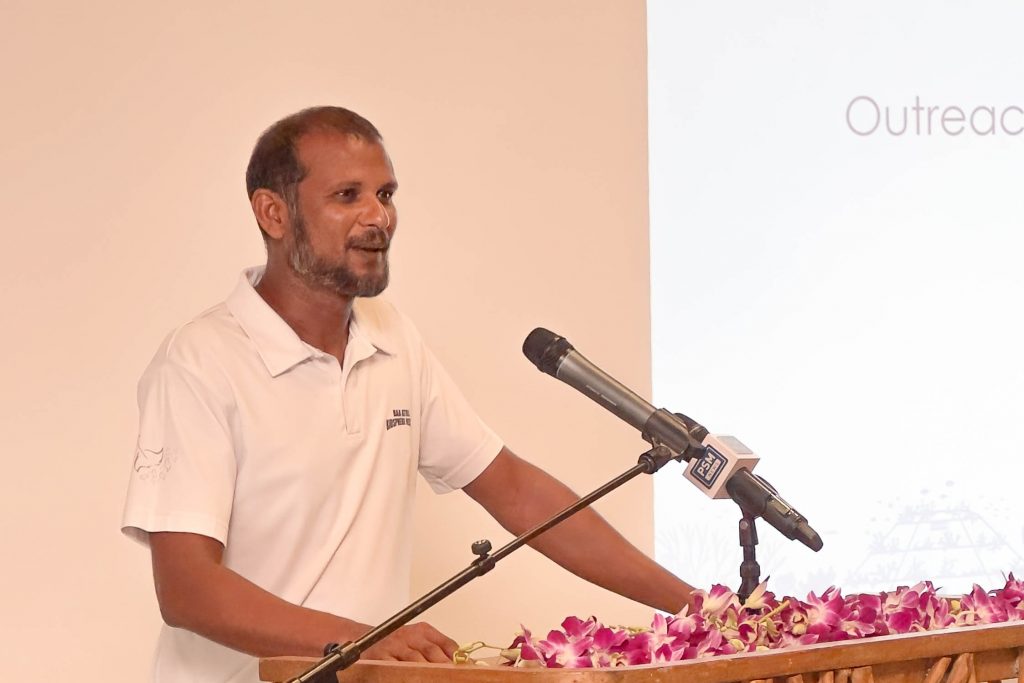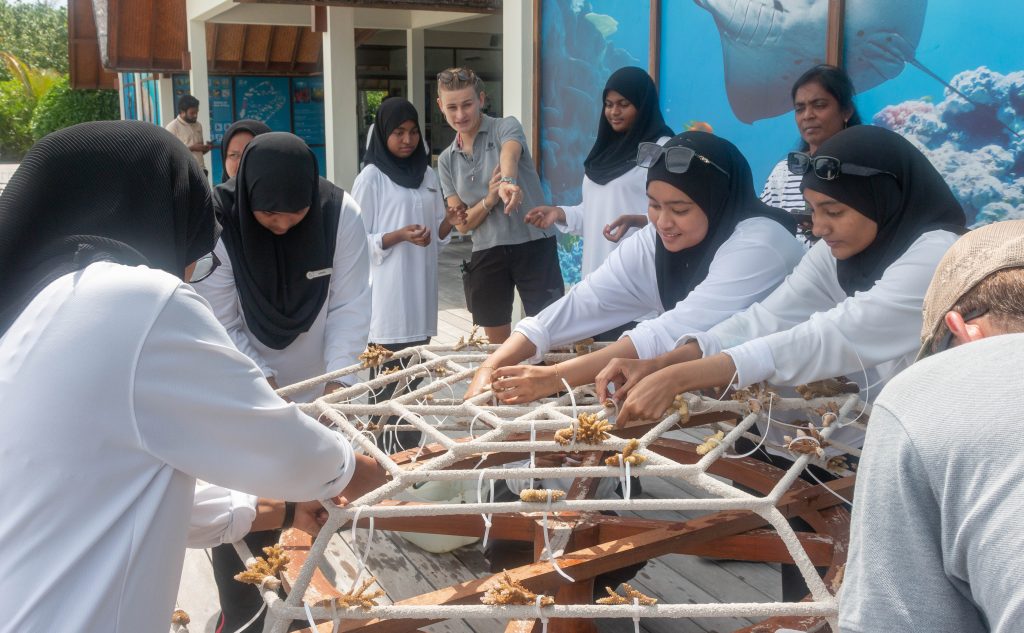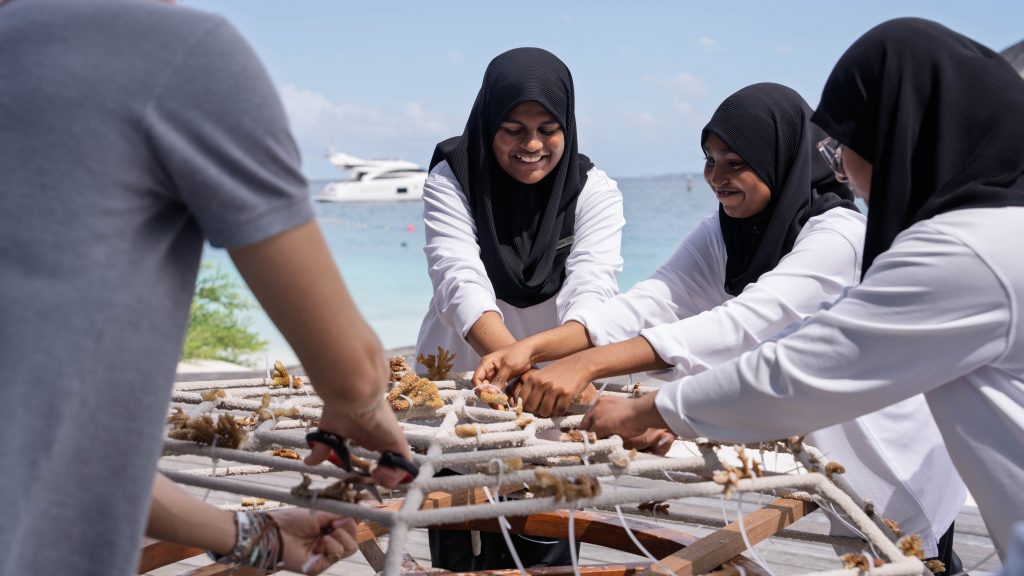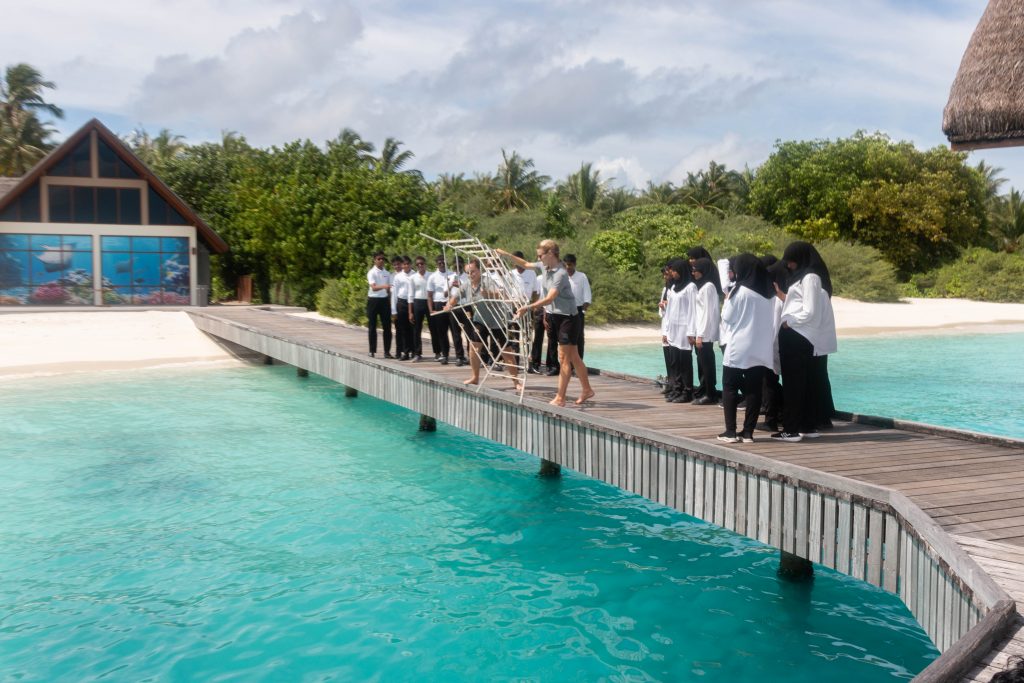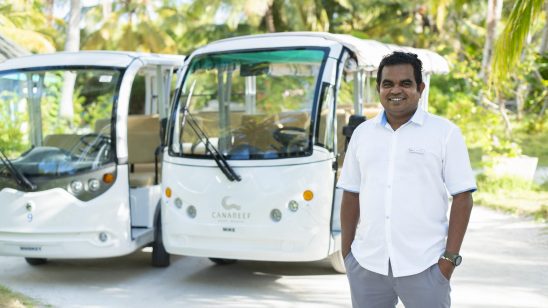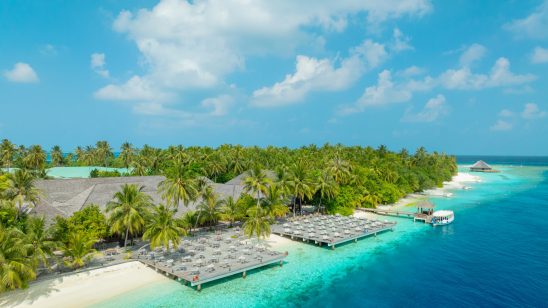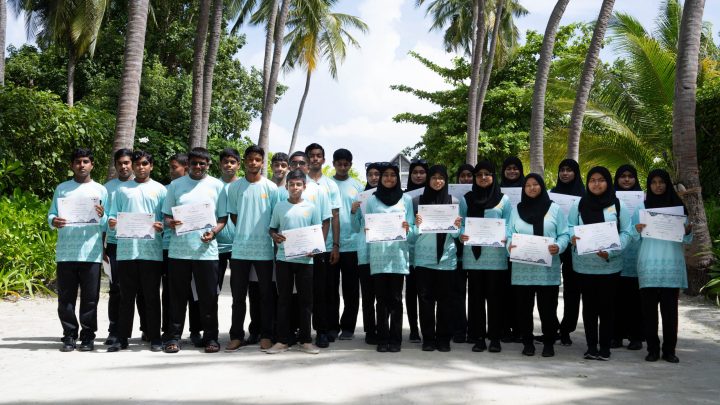
Baa Atoll students dive into marine discovery at Four Seasons internship programme
The Four Seasons Maldives Internship Programme at Landaa Giraavaru, hosted as part of a broader initiative by the Baa Atoll Council, continues to stand as a meaningful model of environmental education and youth engagement. Its most recent marine biology internship offered a transformative experience for Grade 9 students from Baa Atoll. Drawing participation from 24 students across 10 schools, the programme created an immersive space to explore marine science, sustainability, and hands-on conservation.
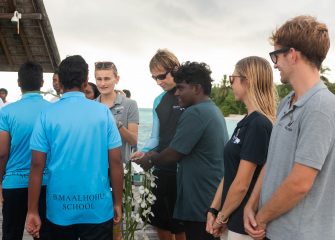
From the onset, students were welcomed into the resort environment with care and intention. The programme opened with a warm reception, team-building games, and a community-style dinner that established a supportive tone for the days ahead. Each student received uniforms and personal training records, adding a sense of formality and purpose to their stay, setting the scene for learning rooted in both professionalism and collaboration.
The official commencement of the programme brought together a group of leaders and educators whose insights helped set a strong foundation for the students’ journey. Armando Kraenzlin, Regional Vice President and General Manager of Four Seasons Resorts Maldives, emphasised the resort’s longstanding role in youth development and sustainability.
Ibrahim Abdul Rahman, Vice President of the Baa Atoll Council, highlighted the importance of local environmental stewardship, pointing to the atoll’s ecological richness as a critical asset. Dr Ahmed Riyaz Jauharee, Dean of the College of Fisheries and Ocean Sciences at Maldives National University, reinforced the need for deep scientific awareness among young people, particularly concerning the health of coral reefs Representing the Baa Atoll Biosphere Reserve, Outreach Officer Shaafi Ali shared his optimism about the growing interest in marine science among youth. Shaahina Ali, Executive Director of Parley Maldives, spoke to the students about the environmental challenges facing the oceans, encouraging them to think critically about sustainability and the importance of collective action. Marie Saleem, Co-founder and Director of Reefscapers, also addressed the students, conducting through workshop sessions with the students, where she explored coral conservation with clarity and urgency, ensuring students understood both the scientific and ethical dimensions of their role.
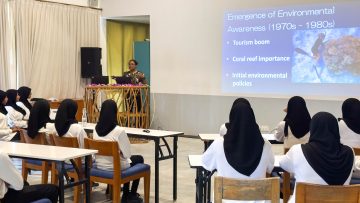
The early sessions covered major environmental challenges facing the Maldives, including the impacts of climate change and marine pollution. As part of this foundational learning, students toured the Marine Discovery Centre at Landaa Giraavaru, a purpose-built hub dedicated to marine research, rehabilitation, and public education.
Marine Discovery Centre (MDC) operates in collaboration with global and regional conservation partners such as Reefscapers and the Manta Trust, introduced students to active scientific programmes focused on coral propagation and turtle rehabilitation. Through guided walkthroughs and hands-on displays, students observed live coral nurseries, understood the stages of coral growth, and engaged with the centre’s data-monitoring technologies used to protect reef systems. At the turtle rehabilitation area, they learned how injured marine turtles are treated and eventually released back into the wild, linking theory with real-world marine care practices. The experience brought a sense of wonder and responsibility, revealing the complexity and fragility of ocean ecosystems in a vivid and accessible way.
Among the most impactful experiences was the coral frame building workshop. Students learned about coral bleaching, a phenomenon driven largely by ocean warming that causes corals to lose their symbiotic algae and their colour. In small groups, they carefully attached living coral fragments to custom-built steel frames designed to promote reef regeneration. These frames, later deployed in the shallow waters near the resort, serve as artificial reef structures that support the recovery of coral habitats.
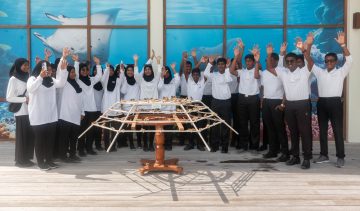
The curriculum continued with marine biology modules that expanded their view beyond corals. In classes led by marine scientists, students explored the biology and behaviour of manta rays and cetaceans. These sessions were followed by a dolphin cruise, where students observed the animals in their natural habitat.
The outing allowed them to connect classroom learning with live observation and further nurtured an emotional appreciation for marine life. These experiences framed science not only as a discipline but as a lens for deeper respect and empathy for the living world.
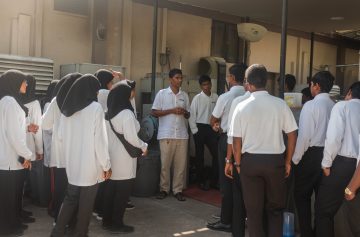
As their environmental knowledge grew, so did their awareness of the sustainability infrastructure that supports resort operations. Faisal Ibrahim, the resort’s Environment and Sustainability Manager, led a comprehensive back-of-house tour, explaining how the resort generates energy through solar panels, separates and manages waste, and reuses organic materials. His overview illustrated how large-scale hospitality operations can be managed responsibly with environmental sensitivity at the core.
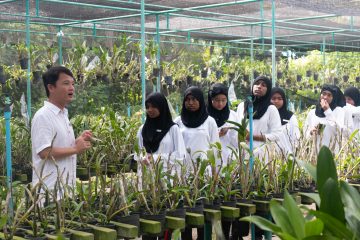
Later, the students were introduced to the resort’s agricultural practices by Huynh Hiep, Grounds and Landscaping Manager. He showed how fruits and vegetables are grown using chemical-free methods, supporting the resort’s kitchens with fresh, local produce while reducing dependency on imports. Together, these sessions gave students a practical understanding of how sustainability is implemented across different sectors, tying ecological principles back to the everyday.
Snorkelling along the house reef and participating in a marine scavenger hunt brought an element of play and excitement to the program. These activities allowed the students to test their new knowledge in a natural setting, identifying species and observing behaviours with new insight. Moments like these not only reinforced key learning points but also strengthened bonds among the students and instilled a shared sense of wonder.
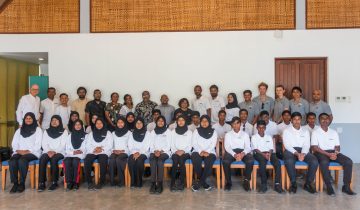
At the conclusion of the internship, a certificate ceremony celebrated the students’ engagement and growth. There was a strong sense of pride and reflection. Many students expressed how the experience opened their eyes to both the scientific intricacies of marine systems and the broader implications of environmental responsibility.
For most, it was not just a school trip but a turning point; one that could influence future educational and career choices, and most importantly, how they view their role in shaping a more resilient Maldives.
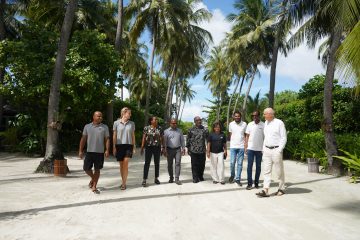
The Baa Atoll Council’s initiative, hosted in collaboration with the Four Seasons Maldives Internship Programme, continues to serve as a powerful platform for youth engagement and environmental leadership. By offering a rich blend of scientific instruction, hands-on conservation, and exposure to real-world sustainability practices, the programme cultivates both knowledge and agency. In a nation defined by its relationship with the sea, developing environmental literacy among youth is not just an investment in the future, it is a necessity that echoes through the reefs, lagoons, and communities that call these islands home.





